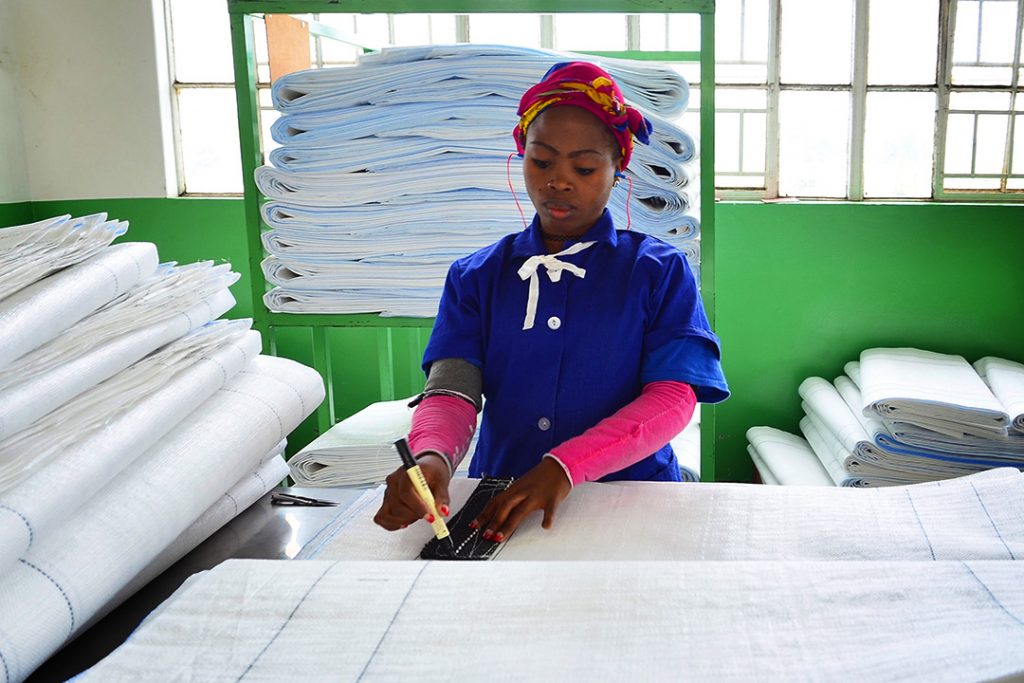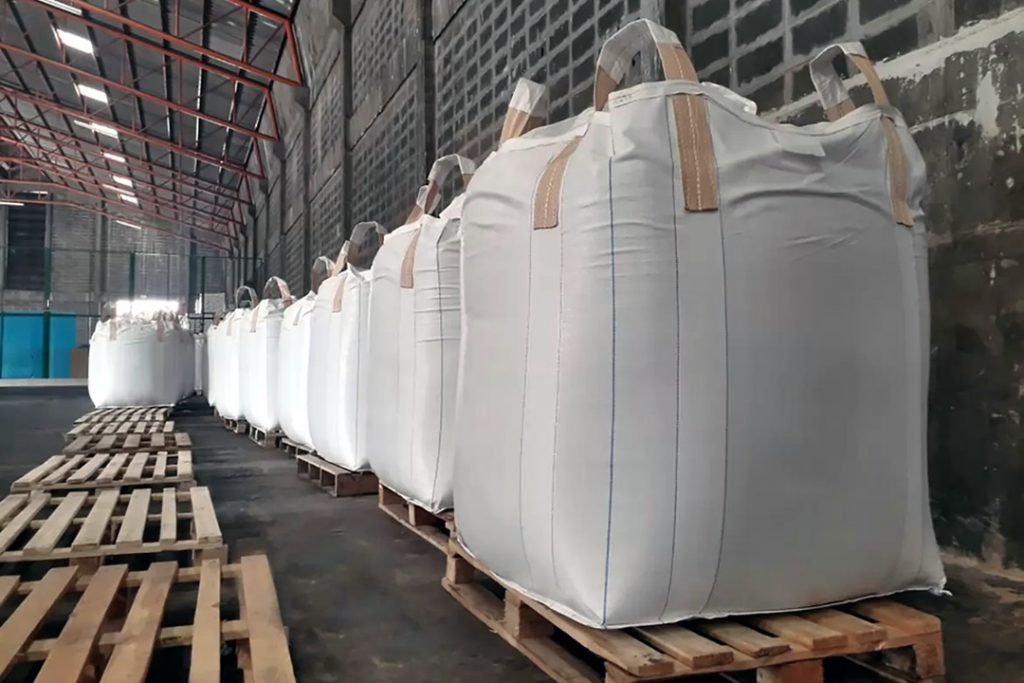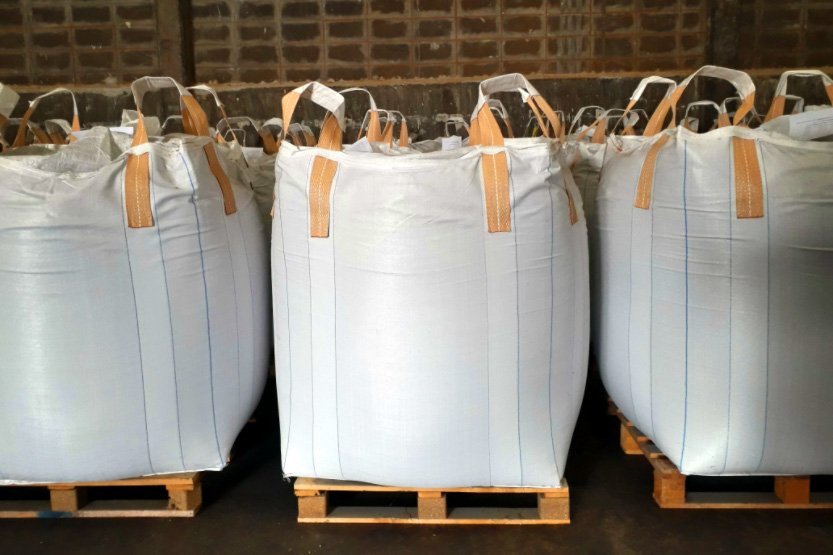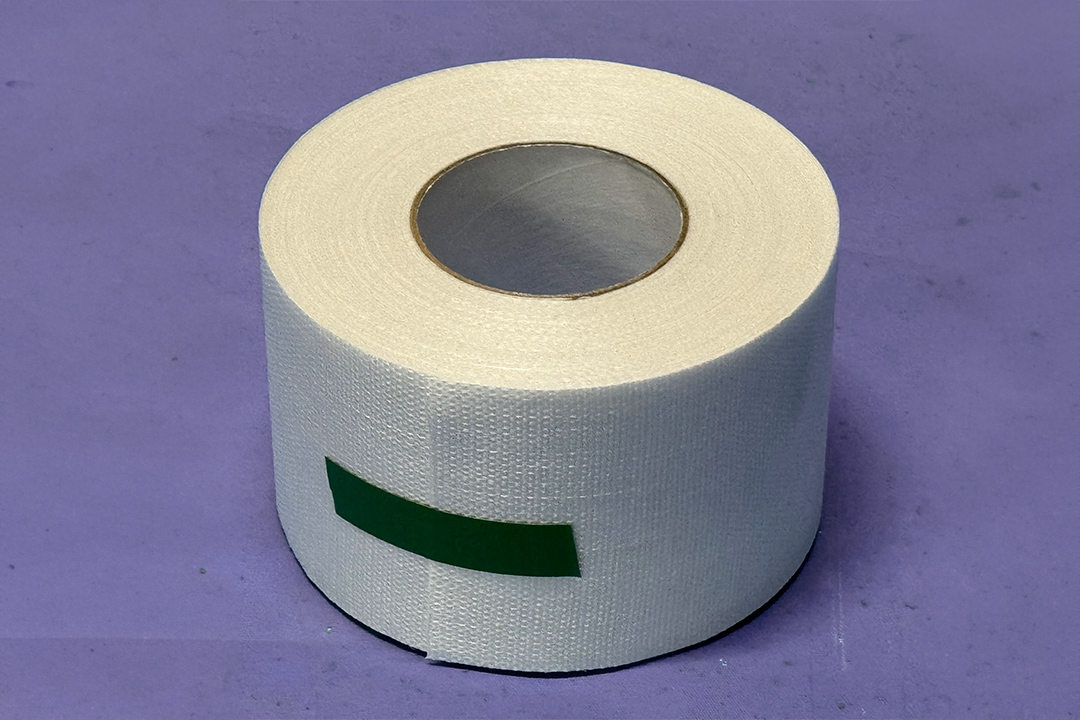Bulk bags play a vital role in the effective storage and transportation of commodities in South Africa’s different sectors. Although these durable packaging products are made to resist heavy use, small tears or punctures can occur in even the strongest bulk bag. Luckily, if this happens to your bulk bags, there is a quick and easy (once-off) repair solution.
This temporary but practical fix is called bulk bag repair tape. Maintaining your bulk packaging solutions is important to get the most bang for your buck. If a bag develops a small tear or hole while it’s filled, you can use repair tape to seal the puncture and prevent product from falling out of the bag.
It’s important to know that bulk bag repair tape is a temporary solution as the bag should be discarded once it’s emptied. Reusing damaged bulk bags is not advised as this can place your employees and equipment in severe danger. Safety is a top priority for Custom Bulk Bags.
We are a leading manufacturer and supplier of bulk bags in South Africa. We produce up to 3.5 million bulk bags per year and our products can safely hold between 500kg and two tonnes of material per bag. We offer several UN-certified designs and attachments, making our products fully customisable to meet your unique needs.

The benefits of bulk bag repair tape
Prior to delving into the instructions, let’s examine the benefits of using bulk bag repair tape:
- Cost-effective – If your bulk bags have small tears or punctures, repair tape provides an easy, low-cost solution. It’s a far more economical approach than having to replace a broken bag.
- Fast and simple repairs – It takes very little time or effort to fix a small tear with repair tape. This minimises downtime and disturbances and enables you to rapidly resume using your bulk bags.
- Reduces waste – Repairing a damaged bulk bag prevents material loss and waste, which in turn promotes a packaging strategy that is more environmentally friendly. Businesses in South Africa that care about the environment should take this into account.
You can get more use out of your investment by applying repair tape correctly and increasing the bulk bag’s short-term lifespan.

When is it good to use bulk bag repair tape?
Even though repair tape is a practical solution, it’s important to know when it’s the best choice. Firstly, you need to assess the severity of the damage. Minor tears, punctures, and snags are the intended instances for bulk bag repair tape. Taped seams, big tears, or extensive ripping may not be fixed securely and reliably with tape. In these circumstances, think about having the bulk bag professionally repaired or replaced.
The second thing to note is the location of the damage. Repair tape might not be a practical solution if the damage is close to the bag’s bottom seam, where weight distribution is greatest. The efficacy of the tape may be impeded by the continuous strain and pressure on the seam.
Lastly, it’s important to note what’s inside the bulk bag. Dry products are often an excellent fit for repair tape. A patch might not be enough for things like powdered materials or fine grains that are susceptible to moisture or leakage. It might be better to go an alternative route, such as replacing the broken bulk bag or using specialised liners.

The best ways to use repair tape
Now that you know when using repair tape is a smart idea, let’s look at some recommended practices to make sure your patch works:
- Clean the area – Make sure the area surrounding the tear or puncture is completely clean and dry before applying the tape. By doing this, any dirt, dust, or debris that would prevent the tape from sticking is removed.
- Get the tape ready – Cut a piece that is a little bit bigger than the damaged area. For best adhesion, make sure the tape’s edge is even and smooth.
- Put the patch on – Make sure the tape makes full contact with the fabric by carefully removing the backing and pressing it firmly onto the cleaned area. Remove any air bubbles to form a strong connection.
- Double patching (optional) – If possible, apply a second patch on the inside side of the bag, aligning it with the first patch on the outside, for additional reinforcement, especially on larger tears.
While bulk bag repair tape is a useful short-term fix, at Custom Bulk Bags, we place more emphasis on the sustainability and long-term worth of your packing options. We provide strong, long-lasting bulk bags that can handle heavy use. This reduces the need for replacements and repairs, which helps to adopt a more ecologically responsible strategy.

When to replace a damaged bulk bag
While repairing and reusing bags has advantages, there are circumstances in which it could be wiser to replace a bulk bag completely. If the damage to the fabric is severe, it’s time for a replacement bulk bag. The bag’s structural integrity is jeopardised by extensive damage, which also puts handling and transit safety at risk.
If there is product contamination as a result of a rip or hole, then thorough cleaning might not be enough. In these situations, changing the bag is crucial to preserving product quality and avoiding cross-contamination.
Even the toughest bulk bags are subject to deterioration over time. It’s time to replace the bag to guarantee safe and effective functioning if there are symptoms such as severe UV damage, deteriorating fabric, or a noticeable loss of structural integrity.
Lastly, any doubts about the integrity of the bulk bag should lead to a replacement. This can be weak lifting straps, frayed edges, or loose stitching. Safety must always come first, and a damaged bag can endanger both the environment and the workers.
Businesses in South Africa can maximise their packaging strategies by knowing when to utilise bulk bag repair tape and emphasising the usage of premium, reusable bulk bags. Custom Bulk Bags is dedicated to giving you the tools and knowledge required to accomplish a financially sensible and environmentally friendly bulk packaging strategy. For more information about our bulk bags or to get advice on the ideal design specifications, please contact us today.
___
Custom Bulk Bags is a leading South African manufacturer of woven polypropylene bags for various industries, such as mining, chemicals and food. We are able to produce over 3.5-million bulk bags per year, keeping our customers in stock at all times. Our bags adhere to the highest levels of quality as a result of our stringent in-house testing and quality control programmes.
Custom Bulk Bags holds ISO 9001 certification and we currently have a number of UN-certified designs. We are a Level 2 B-BBEE manufacturer and supplier and fall under the ownership structure of Deneb Investments Limited. For more information on our products, contact sales@custombulkbags.co.za. Follow us on Facebook, LinkedIn and Instagram for our latest news and industry insights.
